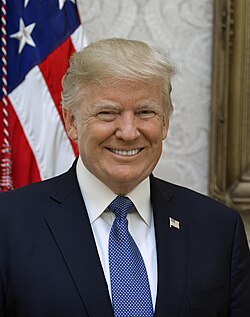BUSINESS &ECOMONY

TRUMP’S NEW TARIFFS SHAKE ASIA’S TECH POWERHOUSES – AND HIT US COMPANIES TOO
How Trump’s New Tariffs Are Disrupting Asia’s Tech Industry – And Making Things Harder for US Companies
When former President Donald Trump reignited his trade war strategy, his goal was clear: bring back American jobs, cut trade deficits, and level the playing field for US businesses. But as the tariff wave grows wider, the impact is now being felt beyond China—and it's hitting Asia’s tech manufacturing hubs hard.
From iPhones to microchips, Asia has long been the world's tech factory. Countries like Taiwan, South Korea, Vietnam, and India have powered the global supply chain, producing the gadgets and components we rely on every day. But now, they’re at the receiving end of Trump’s expanding tariffs—and so are the American companies that depend on them.
Apple, Nvidia, and Amazon Caught in the Crossfire
Apple, for example, reported strong earnings recently. But its success may be short-lived. The company’s CEO, Tim Cook, revealed that tariffs had already cost Apple $800 million last quarter—and future tariffs could add $1.1 billion more in extra expenses. That’s because most of Apple’s iPhones are made in China, Vietnam, and increasingly, India—all now hit with higher US import taxes.
It’s not just Apple. US chipmaker Nvidia also depends on Taiwan’s TSMC (the world's biggest chip foundry) to build its high-performance AI chips. But with Taiwan now facing a 20% tariff, the cost of cutting-edge technology is rising fast.
Amazon, Etsy, and eBay are feeling the pinch too. A new move from Trump scraps the "de minimis" rule, which used to allow products under $800 to enter the US tax-free. That change hits not just Chinese retailers like Shein and Temu, but also small sellers and second-hand shops on American platforms. Consumers are already bracing for price hikes.
Asia's Tech Giants Under Pressure
These tariffs don’t just affect US companies—they’re also a major blow to Asian economies that have grown rich on exports. Taiwan, South Korea, Japan, India, and Vietnam have all benefited from the demand for smartphones, batteries, semiconductors, and electronics.
In fact, when Trump first imposed tariffs on China during his first presidency, many manufacturers shifted production to “China+1” locations like India and Vietnam. But this time around, even those countries aren’t safe—Trump’s new rules target rerouted and trans-shipped goods too.
Vietnam: A 20% tariff on most goods, with rerouted (trans-shipped) goods facing up to 40%.
India: A 25% tariff after failing to reach a deal with Washington.
Taiwan: 20% on chips, a key export.
The result? A sell-off in stock markets across Asia, rising costs for tech products, and growing uncertainty for global trade.
A Global Economy Feels the Shockwaves
In a globalised world, tariffs aren’t just a tool to punish foreign economies—they ricochet. While the Trump administration argues these moves protect American jobs, the reality is more complicated. US businesses are deeply connected to Asia’s supply chains. Disrupting those links could drive up prices for American consumers and weaken companies' competitiveness.
With more tariff deadlines looming and little clarity on future trade deals, companies are in limbo. From factories in Asia to stores in the US, the consequences of this trade war are spreading fast—and nobody is quite sure where it will end.
"This represents a significant development in our ongoing coverage of current events."— Editorial Board









